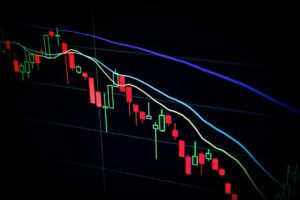The forex market is one of the largest and most liquid financial markets in the world. With trillions of dollars being traded daily, it offers numerous opportunities for individuals to make profits through various trading strategies. One such strategy is long-term forex trading, where traders hold their positions for an extended period, typically weeks to months. In this article, we will explore the benefits and risks associated with long-term forex trading.
One of the primary benefits of long-term forex trading is the potential for significant profits. Unlike short-term trading, which aims to capitalize on small price movements, long-term trading seeks to capture larger trends in the market. By identifying and riding these trends, traders can potentially make substantial profits. This is particularly true when trading major currency pairs, as they tend to exhibit more significant and sustained trends.
Long-term trading also offers the advantage of reduced transaction costs. Short-term traders often face higher costs due to frequent buying and selling of currencies, including spreads, commissions, and slippage. In contrast, long-term traders can hold onto their positions for an extended period, thereby reducing the number of transactions and associated costs. This can significantly improve their overall profitability.
Another benefit of long-term forex trading is the potential for compounding returns. When traders hold onto their positions for an extended period, they can benefit from the compounding effect of their profits. As profits are reinvested into larger positions, the potential for higher returns increases over time. This compounding effect can be a powerful wealth-building tool, particularly for disciplined long-term traders.
Long-term trading also allows traders to take advantage of fundamental analysis. Fundamental analysis involves studying economic indicators, geopolitical events, and central bank policies to determine the long-term direction of currencies. By focusing on the underlying factors that drive currency values, long-term traders can make informed decisions and position themselves accordingly. This approach removes the noise of short-term market fluctuations and provides a more holistic view of the market.
While long-term forex trading offers numerous benefits, it is not without risks. One of the primary risks is the potential for significant drawdowns. Since long-term traders hold onto their positions for extended periods, they are exposed to market fluctuations that can result in significant losses. This risk is further amplified when leverage is involved, as it magnifies both profits and losses. Therefore, it is crucial for long-term traders to have a robust risk management plan in place to protect their capital.
Another risk of long-term trading is the possibility of missed opportunities. While long-term traders aim to capture major trends, they may miss out on shorter-term opportunities that arise in the market. These shorter-term trends, often driven by news events or market sentiment, can provide quick profits for short-term traders. Long-term traders must strike a balance between capturing long-term trends and taking advantage of shorter-term opportunities to maximize their profitability.
Additionally, long-term forex trading requires patience and discipline. Holding onto positions for weeks or months can be mentally challenging, particularly during periods of market volatility or when faced with adverse price movements. Long-term traders must have the discipline to stick to their trading plan and not be swayed by short-term market fluctuations. Emotion-driven trading decisions can lead to poor outcomes and erode profits.
In conclusion, long-term forex trading has several benefits and risks that traders should consider. The potential for significant profits, reduced transaction costs, compounding returns, and the ability to utilize fundamental analysis make long-term trading an attractive strategy. However, traders must also be aware of the risks associated with drawdowns, missed opportunities, and the need for patience and discipline. By understanding and managing these risks, long-term traders can position themselves for success in the forex market.






